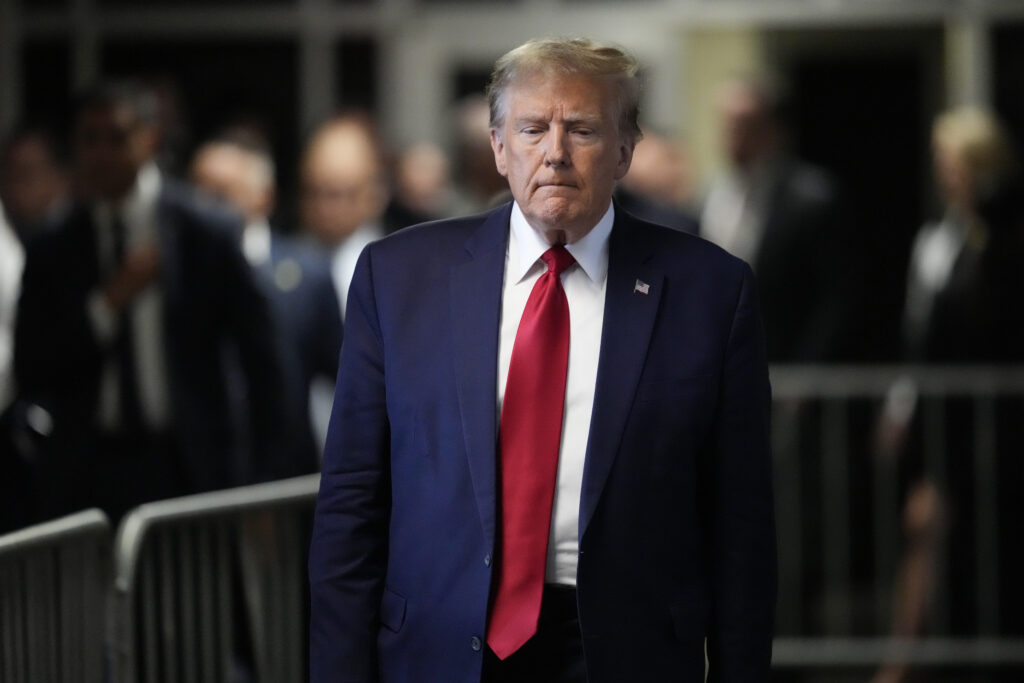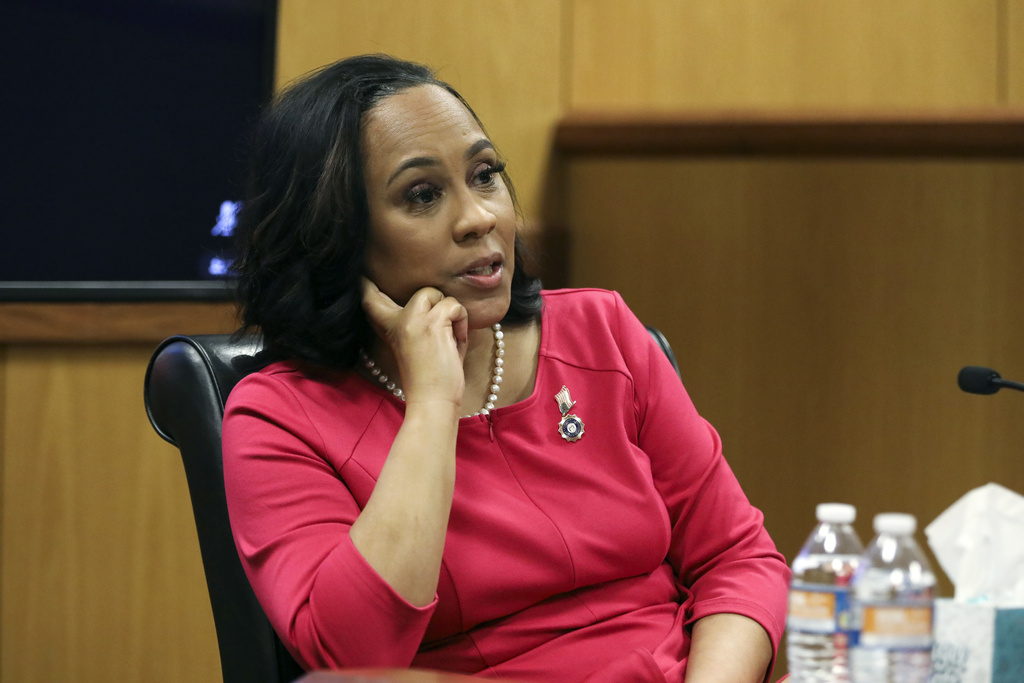Donald Trump‘s legal woes were on full display in two blockbuster hearings on Thursday across two state criminal cases he faces, leading to both positive and negative outcomes in the former president’s bid to fight charges amid his presidential campaign.
Trump started his day in Manhattan criminal court with a major loss over his bid to dismiss and delay his trial, just hours before his prosecutors in Georgia made a tense appearance on the witness stand in Fulton County Thursday afternoon. The former president will now face his first trial of four indictments on March 25, when jury selection will commence in Manhattan.
The New York case involves a 34-count indictment alleging that Trump falsified business records to hide payments made in the lead-up to the 2016 election. The roughly $130,000 sums were paid to two women who said they had affairs with Trump, porn star Stormy Daniels and former model Karen McDougal.
In the Georgia case, Trump is one of 19 defendants charged in a sweeping racketeering indictment with allegedly trying to subvert the 2020 election in the state. One of Trump’s co-defendants, Mike Roman, is asking Fulton County District Attorney Fani Willis to recuse from the case, saying she behaved improperly and gained financially from a relationship with her hired special prosecutor, Nathan Wade.
Willis is fighting to remain as the lead prosecutor of the Georgia case, and Trump has pleaded not guilty to 91 charges spread across four indictments.
Here were the highs and lows for Trump in the hearings during his tumultuous day in court.

Trump faces first criminal trial next month
The Manhattan case was initially slated to take place after Trump’s federal election interference trial brought by special counsel Jack Smith in Washington, D.C., but it is now the first in line given that the Washington, D.C., case is stalled by Trump’s immunity claims.
Justice Juan Merchan started the Thursday morning hearing in Manhattan with little patience for Trump’s lawyer Todd Blanche, and Merchan quickly ruled against the former president’s gambit to dismiss the case and further delay proceedings.
After Merchan rejected Trump’s motions to dismiss the case, he turned to several questionnaire prompts that jurors could be asked before they are selected next month. The justice asked Bragg and the defense team to confer and reach an agreement on unresolved questionnaire matters by next week.
One element working in Trump’s favor is that the hush money case is largely seen as the weakest case against him, and even if he is convicted before the Republican National Convention in mid-July, the falsification of records charges he faces usually don’t result in jail time for first-time offenders.
If Trump is not acquitted in the case, the appeals process for a conviction would give him a second chance at finding flaws in Manhattan District Attorney Alvin Bragg’s case by a higher court — and likely wouldn’t be resolved until after the November election. But even if Trump regained the presidency, he could not pardon himself for state-level crimes.

Willis attempts to explain cash payments to ex-lover and blasts allegations as a ‘lie‘
During the hourslong hearing to consider whether Willis should be disqualified from the Trump case, Wade admitted there are no records showing Willis reimbursed him for vacation expenses because she paid him in cash. But Willis made clear that she did not believe she behaved improperly.
The district attorney explained that she “always” kept cash at her house, stating that she learned such practices from her father and that because “cash is fungible,” there was no way of knowing if the money paid to Wade involved funds that came from her payment as a public official.
“And so when you got cash to pay him back on these trips, [did] you go to the ATM?” Roman’s attorney Ashleigh Merchant asked.
“No,” Willis said, affirming the county paid her salary via direct deposit when Merchant asked. “I have money in my home.”
Willis at several points was reminded by Superior Court Judge Scott McAfee to answer Merchant’s questions directly, cautioning that he would have to “strike” her testimony if she continued to fail to answer specific questions asked by Merchant.
One rebuke from McAfee came when she did not clearly answer whether Wade had ever visited her home.
After Willis gave evasive responses about when and where Wade had visited her, McAfee interjected, and Willis admitted that Wade visited her at a condo she leased starting in early 2021.

Wade, who has been paid more than $650,000 by Fulton County for handling the case, also sought to rebut the claim that he lied about the duration of his relationship with Willis in his divorce case.
“Because my marriage was irretrievably broken” by 2015, he said he “was free to have a relationship.” Wade had said in a sworn statement filed during his divorce proceedings last year that he had had no relationship outside his marriage.
While both Willis and Wade testified that their relationship began in early 2022, months after Willis hired him to take on the case, they struggled to provide precise dates as to when their relationship began and ended.
CLICK HERE TO READ MORE FROM THE WASHINGTON EXAMINER
And while Willis said she was eager to testify, she did not hold back from claiming the allegations amounted to “lies’ against her that were “highly offensive.”
Proceedings over Roman’s Jan. 8 motion to dismiss Willis from the case are slated to continue Friday at a 9 a.m. hearing and could linger into next week, as McAfee has hinted at a need for additional arguments to be weighed by both parties in the dispute.
